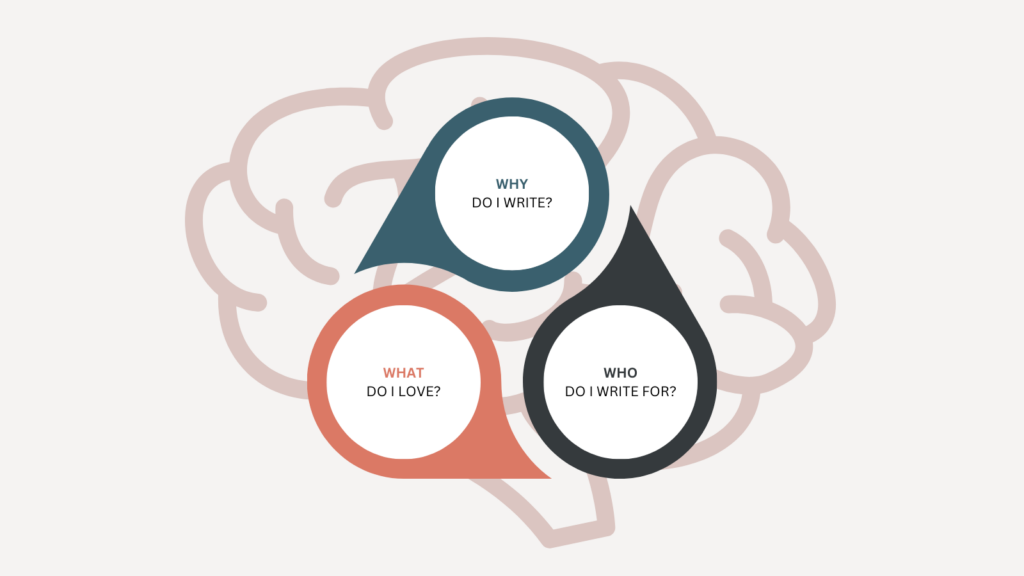What’s uniquely human that can improve your decision-making, creativity, and productivity and is completely free?
The answer is: Writing.
To date, we haven’t found any other animal on Earth that has developed any form of writing, whether carved symbols or inked patterns, as a tool for transcribing ideas. We humans are the only ones with access to this powerful tool.
Unfortunately, many of us make use of this tool in only the most basic ways: to send emails, write down a to-do list, or text other people. When, in fact, writing is a superpower that can unlock parts of your mind that are harder to access otherwise.

Your mind on writing
If metacognition is your compass, then writing is your map. By putting down your thoughts on paper, you can navigate them more easily. As such, and especially in our age of information overload, writing is not just a means of expression. It’s a tool for clarity, comprehension, and connection.
1. Writing is a cognitive filter. Instead of consuming a lot of random content, writing about what you read, watch, or listen to will force you to do some preliminary research to select high-quality sources and become more intentional with your information diet. In this way, writing becomes a filter for what information enters your mind — for the seeds you plant in your mind garden.
2. Writing is the greatest explainer. “Ce qui se conçoit bien, s’énonce clairement” (“What is clearly thought out is clearly expressed”) once said Boileau, a French writer. This is the principle behind the Feynman Technique, named after the Nobel prize winning physicist who has been dubbed The Great Explainer.
“Without using the new word which you have just learned, try to rephrase what you have just learned in your own language.” — Richard Feynman, Physicist.
When you struggle to write something in your own words, it often means you haven’t completely grasped the idea. Writing is a sometimes painful way to highlight those gaps: there is no hiding behind moving your hands in circles and using your most authoritative voice. If you can write it, you can truly explain it.
3. Writing is a memory enhancer. The generation effect is the phenomenon where information is better remembered if it is actively created from your own mind rather than read in a passive way. Instead of passively taking notes, making notes ensures you are in active learning mode and form connections between new and pre-existing knowledge, which will make it easier to retrieve information later on. And when your memory inevitably fails you, you will always be able to go back to your notes to refresh them. Bonus tip: You may even edit your existing notes to rephrase them in a more memorable way.
4. Writing sparks creativity. Creativity relies on your ability to connect existing ideas together. To be able to form such connections, you need a way to retrieve and explore ideas that you encounter or that pop into your mind. Writing is a great way to create such a searchable database of ideas, so you can connect them together and generate your own incremental ideas. In addition, while many people have similar ideas, the pathway to these ideas often differs from mind to mind. Writing your thoughts down will help you track the life of your thoughts and provide unique material to produce creative content.
5. Writing is a connector. Sharing your work multiplies the power of writing. By “working with the garage door open,” as Robin Sloan said—you create a feedback loop allowing you to improve your thought processes, learn something new, discover a different way to tackle a problem, or even make friends with like-minded people. Don’t wait until you have a perfect draft of an article. Share to learn, not to shine.
Writing is more than a practical tool—it’s a way to think better, both on an individual and collective level. To make the most of it, write more, write often, and share some of your writing with the world.
Creating your writing practice
What to write about? How often should you write? In which format? You could spend hours and days overthinking every aspect and not writing a single line. Instead, you can find your “Writing Ikigai” by answering these three powerful questions:
- Why do I write? This question probes your deeper motivations for writing. Is it to express yourself, inform others, entertain, or perhaps to heal? Your ‘why’ will help you get started even if the format and frequency are uncertain. With a clear underlying motive, you can confidently experiment and refine the execution.
- What do I love learning about? The writing process is much more enjoyable and the words flow more easily when you follow your curiosity. Your ‘what’ could be external (new knowledge, skills, topic of expertise) or internal (your emotions, past experiences, hopes for the future).
- Who am I writing for? Are you writing for yourself, for a specific group of people, or for the world at large? Understanding your ‘who’ will help you tailor your tone and content to the reader — which could simply be your future self.
Just write down these questions — meta, I know — and answer them as truthfully as possible. Once you’re done, just get started! Maybe it’s a daily journal you keep to yourself, maybe it’s a quarterly update to your friends and former colleagues, or maybe it’s, like I did, a weekly newsletter.
And you don’t have to stick to just one way of writing. Mix and match it, play, change it up… In short, have fun! Because writing is thinking, and thinking should be fun.
